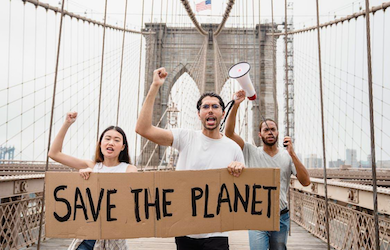Pancake Day is enjoyed by millions each year as an opportunity to mix the perfect batch of batter and get flipping. Otherwise known as Shrove Tuesday, it is a Christian feast day which precedes the fasting period of Lent [1]. Although not all of them involve pancakes, celebrations relating to Shrove Tuesday span across the globe:
- ‘Fastnacht’ (‘Eve of the Fast’ in Germany),
- ‘Mardi Gas’ (‘Fat Tuesday’ in France and Brazil),
- ‘Sprengidagur’ (‘Bursting Day’ in Iceland),
- ‘Tlusty czwartek’ (‘Fat Thursday’ in Poland),
- ‘Laskiainen’ (‘Shrove Tuesday’ in Finland) [2].
Historically, on Shrove Tuesday, Anglo-Saxon Christians went to confession to be ‘shriven’ (absolved from their sins). A bell would be rung to call people to church – which became known as the ‘Pancake Bell’ – and you may still hear its chimes in some districts today. Following this, Christians would abstain from indulgent foods and festivities from Ash Wednesday, right through the Lenten period, until Easter. The association with pancakes stems from the need to use up rich ingredients such as eggs, milk, and sugar, before the fasting began [1,2].
Figure 1: Pancakes. [5]
Carbon Fasting
While religious ties to fasting have lessened in the UK, the underlying idea of ‘going without’ may serve as food for thought when it comes to considering new habits. Carbon fasting is a unique consumer-driven approach whereby subtle, sustainable lifestyle changes can help to:
- lower individual carbon footprint, and
- help reduce greenhouse gas emissions in the broader society.
It is common knowledge that our current way of living is not sustainable for the planet and its atmosphere. The UN stresses that transitioning to a net-zero world is one of the greatest challenges humankind has ever faced, and calls for ‘nothing less than a complete transformation of how we produce, consume, and move about’ [3]. The focus at large remains on governmental bodies and business to strive for net zero, which is arguably exactly where it should be with just 100 companies responsible for 71% of global greenhouse gas emissions since 1988 [4].
However, it is important that we do not lose sight of the collective difference that can be made from within our own homes. True transformation may begin to take place when there is a shift to individual behaviours that support the reduction of emissions.
Reduce Your Emissions
So, between now and Easter – and beyond – why not see if you can make a sustained reduction to your carbon footprint? For example, plan to only purchase fruits and vegetables that are not packaged in single use plastic.
Here are some other ways to reduce personal emissions:
- Walk, cycle, or use public transport instead of driving, where possible
- Shop second-hand clothing – browse local charity shops or Vinted
- Eat less meat – just one or two vegetarian meals a week can make a significant difference
- Take shorter showers
- Make a weekly meal plan and shopping list to limit food waste
- Turn down the heat on your thermostat by 1°C
- Go plastic free – consider buying ingredients and refills at your local zero waste shop
- Buy locally grown, in-season produce
- Start composting
- Line dry laundry rather than using a tumble dryer
- Recycle more and do it effectively – If you are unsure where to recycle certain items in your local area, check here (UK only)
You can learn more about your individual carbon footprint by using the Ecological Footprint Calculator (Global Footprint Network) or WWF’s Footprint Calculator.
About Pager Power
Pager Power undertakes technical assessments for developers of renewable energy projects and tall buildings worldwide. For more information about what we do, please get in touch.
References
[1] Pancake Day, Historic UK. Last accessed: 09/02/2024. Available at: https://www.historic-uk.com/CultureUK/Pancake-Day/
[2] Lent. Wikipedia. Last accessed: 09/02/2024. Available at: https://en.wikipedia.org/wiki/Lent
[3] United Nations. For a livable climate: Net-zero commitments must be backed by credible action. Last accessed: 09/02/2024. Available at: https://www.un.org/en/climatechange/net-zero-coalition#:~:text=Put%20simply%2C%20net%20zero%20means,oceans%20and%20forests%20for%20instance.
[4] The University of Manchester. Corporations vs. Consumers: Who is really to blame for climate change? Last accessed: 12/02/2024. Available at: https://sites.manchester.ac.uk/global-social-challenges/2022/07/07/corporations-vs-consumers-who-is-really-to-blame-for-climate-change/#:~:text=Since%201988%2C%20just%20100%20companies,of%20global%20greenhouse%20gas%20emissions.&text=In%20addition%20to%20this%2C%20only,during%20the%20same%20time%20period.
[5] Pexels. Last accessed: 12/02/2024. Available at: https://www.pexels.com/photo/stack-of-pancakes-with-blueberry-and-leaves-7144925/




